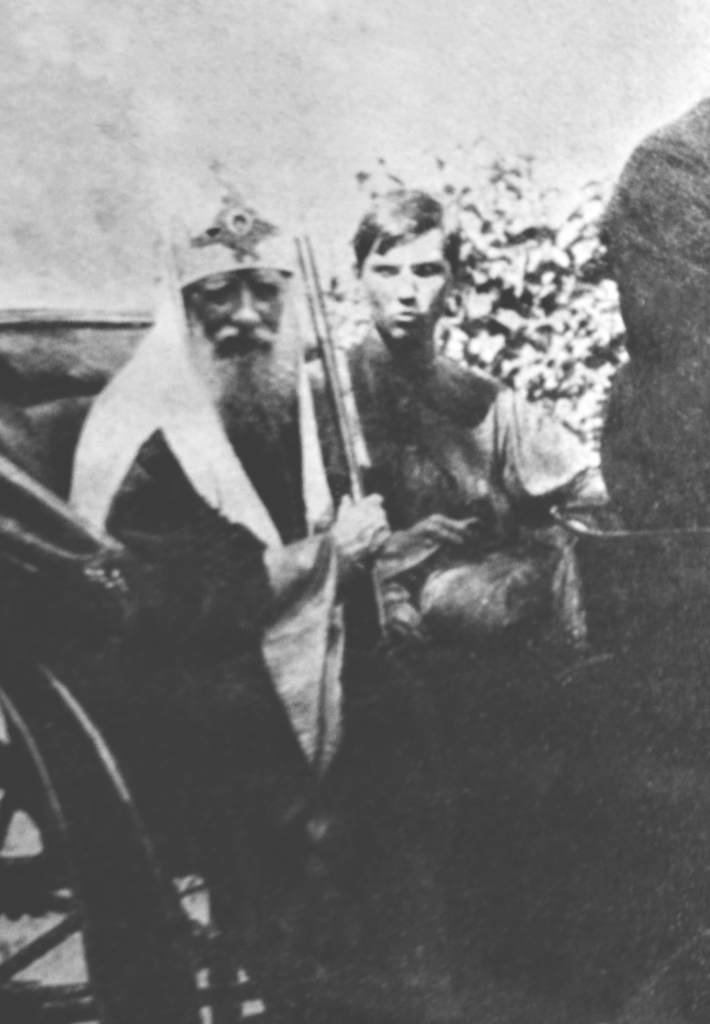
[ABOVE—Patriarch Tikhon of Moscow near Donskoy Monastery Jul 1923]
In 1917, the Russian Orthodox Church restored the position of Patriarch of Moscow that had been abolished over two hundred years ealier by Peter the Great. Certain Orthodox leaders resisted the restoration, but the success of the Bolsheviks changed the mood. The church was going to need someone to hold it together and speak for it.
The delegates selected three candidates and placed their names in a urn from which one would be drawn. The lot fell to Tikhon who deplored the choice. “How many tears I shall have to swallow and how many groans let out in the patriarchal service that is set before me, and especially at such a terrible time!” By his election, he was forced into conflict with the Communist regime and stands as an example of an Orthodox patriarch who suffered martyrdom for trying to carry out the work of the church in teeth of atheistic harrassment.
Tikhon had been deeply loved wherever he served (including in Alaska), and gained a reputation for kindness and generosity. The Russian people would adore him.
The Bolsheviks passed law after law restricting and plundering the church. Their atheism was and cruelty knew no bounds. Early in 1918 Tikhon pronounced an anathema on them. He called all the Orthodox to enter the ranks of spiritual warriors against the foe.
However, shortly afterward he adopted an apolitical stance and urged clergy to preach Christ only and the gospel, not to take political sides. He also gave regional bishops permission to make decisions that would traditionally have been his, should they be cut off from his leadership. When famine came, he authorized churches to their valuables to feed the poor, except the items used in the divine liturgy. However, the Soviets demanded all valuables without regard to their use, and many priests died defending the sacred utensils.
The Communists placed Tikhon under house arrest. Revisionists seized control of the church. Praising the Communist revolution as a Christian creation, and Lenin as an able leader, they imprisoned Tikhon in Taganka prison. Soon they stripped him of his title, causing him to revert to his birthname, Basil Bellavin. Fed false information in prison, he eventually revoked his anathema and was released. He was shocked to find the true state of the church that had been taken over by those who hated it. He reproached himself for having rescinded his anathema.
The rest of his life he struggled desperately to salvage the church. He died in 1925, apparently poisoned.
